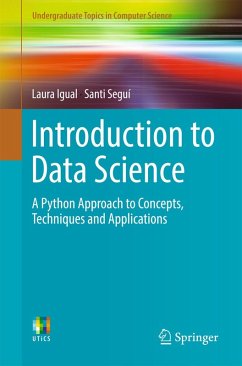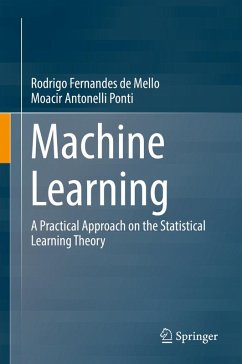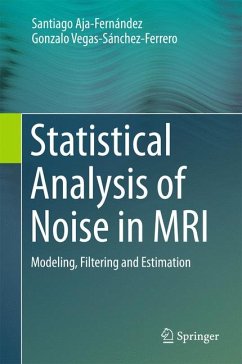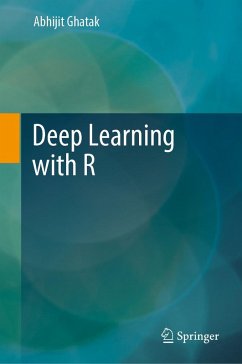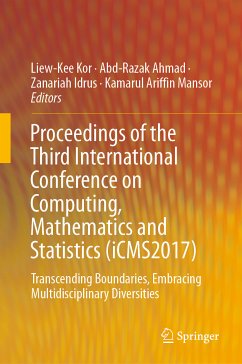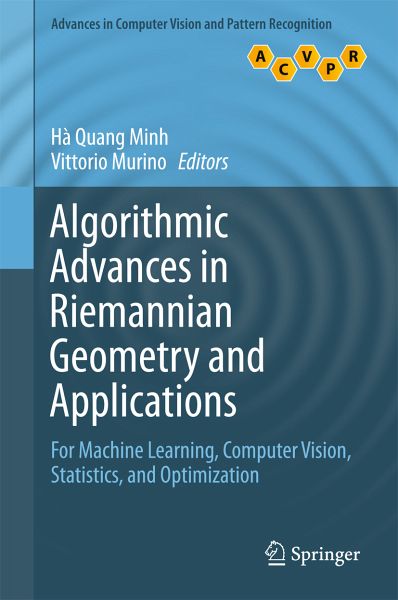
Algorithmic Advances in Riemannian Geometry and Applications (eBook, PDF)
For Machine Learning, Computer Vision, Statistics, and Optimization
Redaktion: Minh, Hà Quang; Murino, Vittorio

PAYBACK Punkte
52 °P sammeln!
This book presents a selection of the most recent algorithmic advances in Riemannian geometry in the context of machine learning, statistics, optimization, computer vision, and related fields. The unifying theme of the different chapters in the book is the exploitation of the geometry of data using the mathematical machinery of Riemannian geometry. As demonstrated by all the chapters in the book, when the data is intrinsically non-Euclidean, the utilization of this geometrical information can lead to better algorithms that can capture more accurately the structures inherent in the data, leadin...
This book presents a selection of the most recent algorithmic advances in Riemannian geometry in the context of machine learning, statistics, optimization, computer vision, and related fields. The unifying theme of the different chapters in the book is the exploitation of the geometry of data using the mathematical machinery of Riemannian geometry. As demonstrated by all the chapters in the book, when the data is intrinsically non-Euclidean, the utilization of this geometrical information can lead to better algorithms that can capture more accurately the structures inherent in the data, leading ultimately to better empirical performance. This book is not intended to be an encyclopedic compilation of the applications of Riemannian geometry. Instead, it focuses on several important research directions that are currently actively pursued by researchers in the field. These include statistical modeling and analysis on manifolds,optimization on manifolds, Riemannian manifolds and kernel methods, and dictionary learning and sparse coding on manifolds. Examples of applications include novel algorithms for Monte Carlo sampling and Gaussian Mixture Model fitting, 3D brain image analysis,image classification, action recognition, and motion tracking.
Dieser Download kann aus rechtlichen Gründen nur mit Rechnungsadresse in A, B, BG, CY, CZ, D, DK, EW, E, FIN, F, GR, HR, H, IRL, I, LT, L, LR, M, NL, PL, P, R, S, SLO, SK ausgeliefert werden.



